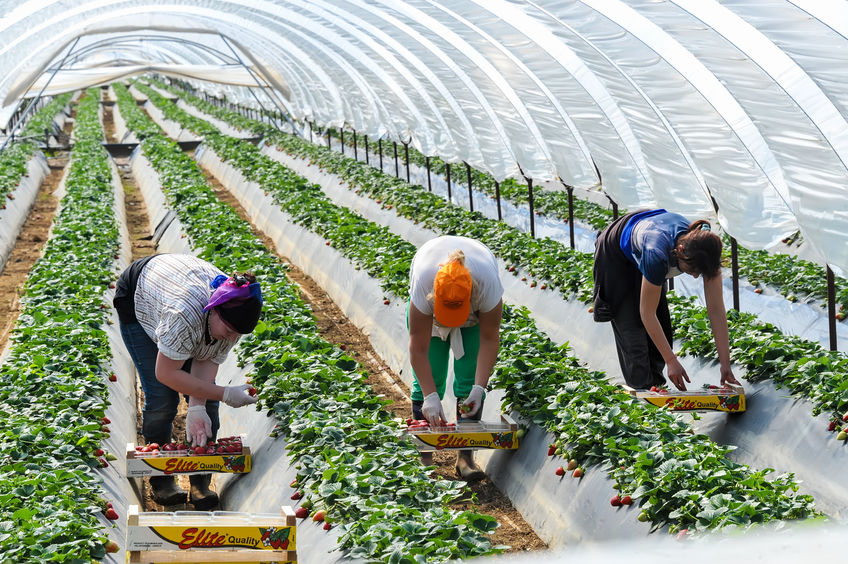Farming industry calls for clarity over ‘settled status’ for EU workers in UK

The Prime Minister has unveiled proposals for EU nationals who have lived in the UK for five years by a specific cut-off date to be given the chance to take up 'UK settled status’.
Theresa May has started her talks on Brexit negotiations, following a rocky snap general election for the Conservatives.
She has already envisaged giving all EU citizens the right to stay after the UK's exit - due on 30 March 2019 - and granting those resident for at the least five years the same rights to welfare, pensions and education as UK citizens.
It comes as news that the number of seasonal workers coming to work on British farms has dropped 17%, leaving farms 'critically short' of people to harvest fruit and veg, a survey by the National Farmers' Union shows.
And a recent industry survey by British Summer Fruits showed that prices could soar by 50% if the UK cannot gain access to EU workers after Brexit.
'Grind to a halt'
Access to seasonal workers is a problem that existed before the EU referendum, but the result has fast-tracked the problem, said Amy Gray, NFU horticultural adviser.
Unresolved questions around free movement of labour, fluctuating exchange rates and the availability of workers in the future are all serious issues facing producers.
“Without a seasonal workforce to carry out time-sensitive jobs, such as harvest work or pruning, there is little doubt that the industry will grind to a halt,” Miss Gray said.
Though research is ongoing to find a mechanised alternative, like soft robotics to perform delicate tasks, this is not yet developed enough.
“Suitably quick, effective and efficient designs are still a number of years off for mainstream use,” added Miss Gray.
Not certain enough
However, the British Veterinary Association (BVA), the UK’s leading body for the veterinary profession, said the Prime Minister’s proposals fall short of providing the certainty that EU vets and vet nurses living and working in the UK deserve.
The BVA sees around 50% of vets registering to practise in the UK coming from overseas each year, mostly from the EU.
British Veterinary Association President Gudrun Ravetz said: “Our EU colleagues play a crucial role in helping the UK maintain animal health, animal welfare, and public health for the rest of society too.
“Earlier this week the Defra Secretary of State rightly acknowledged the importance of EU vets to the UK economy, from food hygiene and safety to monitoring disease outbreaks and facilitating trade.
“The veterinary profession is relatively small, so the loss of even a small percentage of the workforce would have a significant impact. The time has come for the Government to provide clear guarantees and stop using people as bargaining chips.”
Living and working rights
The BVA has called for all EU vets and vet nurses currently working in the UK to be guaranteed living and working rights.
Gudrun Ravetz continued: “At this stage, the Prime Minister’s outline proposal leaves too many questions unanswered and we hope the full details, due to be released on Monday, offer something more concrete. The EU referendum has already had a serious effect on EU colleagues, who have been teetering on a knife-edge for 12 months now.”
Figures recently released by the Royal College of Veterinary Surgeons, the veterinary profession’s regulator, show 44% of EU vets living in the UK are fearful about what the future holds.
Two in five vets are saying they are now more likely to leave, and 18% are actively looking for work outside the UK.
The outline proposal does not indicate whether individuals with settled status will be permitted to bring in children or spouses, and whether the new status will be subject to conditions other than length of residency.








